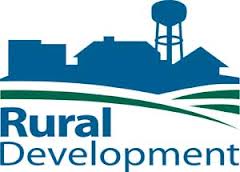Introduction
As an intern at the Centre on Integrated Rural Development for Asia and the Pacific (CIRDAP), I will be working under the supervision of Dr. Vasenthi Rajendran, Director of the Information and Communication Division. My work will focus around the youth of the CIRDAP Member Countries (CMCs). A conference will be held within a few months in Delhi, India concerning the youth policies and programs of the CMCs and I will be assisting my supervisor to prepare a paper on this issue which will be presented at the conference.
Overview of the Organization
Brief History
The World Conference on Agrarian Reform and Rural Development (WCARRD) 1979 adopted a broad based strategy for national progress based on growth with equity and participation. It emphasised the redistribution of economic and political power, fuller integration of rural areas into national development efforts, expanded opportunities of employment and income for rural people and development of farmers’ associations, co-operatives and other forms of voluntary, autonomous, democratic organisations of primary producers and rural workers.
As a part of the strategy for implementation of WCARRD, the role of the regional level inter-government organisation was envisioned and, accordingly, CIRDAP was established under the aegis of FAO in 1979.
Nature of the Organization
The objectives of the Centre were laid down as to assist national action, promote regional cooperation and act as a servicing institution for RD and PA policies of its member countries through research, action research, training, and documentation and information dissemination.
Presently, it has 15 member countries namely, Afghanistan, Bangladesh, Fiji, India, Indonesia, Iran, Lao PDR, Malaysia, Myanmar, Nepal, Pakistan, Philippines, Sri Lanka, Thailand, and Vietnam. Over the last 30 years, CIRDAP has been playing an important role in bringing about meaningful collaboration among policy makers, with intensified advocacy on integrated, systematic and relevant knowledge development and dissemination in the area of rural development (RD) and poverty alleviation (PA) in its 15 member countries of the Asia-Pacific region. It has been functioning as a regional level think tank for its member countries.
Head of the Organization
Director General, Dr. Durga Prasad Paudyal, Nepal
With the expertise on local governance and decentralisation, Dr. Paudyal has extensive research experience on rural development issues across the Asia-Pacific region. He worked as Executive Director of Rural Self-Reliance Development Centre (1999-2004), Nepal. A Consulting Specialist, Dr. Paudyal served several national and international organisations in Nepal. He was also a professional staff-member of CIRDAP from 1986-1995. He has contributed a lot in the policy-making process of Nepal as a member of the High Level Decentralisation Coordination Committee (1997) with the Chair of the Prime Minister of Nepal, and as a Member-Secretary of the High Level Committee to Strengthen Local Bodies (2003) constituted under the Chair of Minister of Local Development. Several papers and articles have been published to his credit, in both Nepali and English, in leading national and international newspapers and journals. Dr. Paudyal has assumed the position of the Director General of CIRDAP from 6 July 2004. His academic qualifications include Master’s in Social Planning, University College of Swansea, U.K and Ph.D. in Local Level Planning, WageningenAgriculturalUniversity, The Netherlands.
Recruitment
CIRDAP has a Director General appointed by the Governing Council. The Director General is the legal representative of the Centre. He directs the work of the Centre in accordance with the policy and decisions adopted by the Governing Council, and under the guidance of the Executive Committee.
The Director General is assisted by a Deputy Director General, who is appointed by the Director General with approval of the Executive Committee. The Deputy Director General and the other staff members of the Centre are appointed by the Director
General in accordance with the policy laid down by the Governing Council and the general standards and guidelines laid down by the Executive Committee.
In appointing the staff of the Centre, the Director General must ensure the highest standards of efficiency, professional competence and integrity. In appointing staff of the posts at levels to be determined by the Executive Committee, the Director General must also pay due regard to the importance of selecting personnel recruited from Member States of the Centre on as wide a geographical basis as possible. The staff of the Centre are responsible to the Director General. They cannot seek or receive instructions in regard to the performance of their duties from any authority external to the Centre.
Organization and Structure
Main Office
Bangladesh is the host state of CIRDAP and the head office is located at Chameli House, 17 Topkhana Road, Dhaka.
Mission and Vision
Mission
To ernsure the existence of prosperous rural communities which enjoy improved living conditions as a result of collaborative efforts of CMCs working together and learning from each other.
Vision
CIRDAP is an Intergovernmental organisation mandated to facilitate the provision of services that will influence policy formulation and programme action towards rural development and poverty alleviation through a network of CIRDAP contact ministries and link institutions.
Organogram of CIRDAP
The Centre consists of four organizational bodies: namely, the Governing Council, the Executive Committee, the Technical Committee and the Secretariat.
The Governing Council
The highest authority of CIRDAP is its Governing Council. It consists of the Ministers in charge of agriculture and rural development in the member states. The Governing Council formulates policies, provides directions to the Centre and approves Planning, the biennial work programme and the budget. At present, the Council is composed of 14 members representing all member states. It meets every two years.
The Executive Committee
The Executive Committee comprises the Secretaries/Permanent Secretaries/Secretaries Generals of the Contact Ministries. Its main functions are to review and make recommendations to the Governing Council on matters concerning the management and operation of CIRDAP. It also has the responsibility of advising the Director General of the Centre on the implementation of the policies and decisions of the Council, its day to day activities, and providing guidelines for the functioning of the Centre. It meets every two years back to back Governing Council Meeting.
The Technical Committee
The Technical Committee (TC) is composed of the heads of all CIRDAP Link Institutions, the Director General of FAO or a representative, a representative of a non-member state, which contribute financially to the Centre; a representative of the Economic and Social Commission for Asia and the Pacific (ESCAP); the Director General of CIRDAP, as well as an expert of outstanding professional competence in IRD. An advisory body, which meets annually, the TC provides professional inputs, and assists in the implementation of the Centre’s programmes and projects in the member countries. The Technical Committee meets annually.
The Secretariat
A full-time Director General, selected by the Governing Council for a four-year term is the chief executive of the organization. The work of the Centre is directed by the Director General in accordance with the policy and decisions adopted by the Governing Council under the guidance of the Executive Committee.
Main Activities
Research Division
Focus:
CIRDAP research studies focus on the dynamics of the socio-economic changes in the rural societies, with a concern for the rural poor. The major aims of the research programmes are to identify and analyse the causal factors affecting the rural disadvantaged groups; provide guidelines to policy makers; formulate follow-up activities leading to further research, action research/pilot projects and training.
Areas covered:
Since the inception of CIRDAP in 1979, the Research Division has completed 79 projects. In view of the new challenges arising out of the recent trends in global integration, action is being taken to redirect research priorities and cater to the needs of CIRDAP Member countries. Recently completed, ongoing or proposed research projects are as follows:
- Comparative Assessment of Decentralisation in Selected Countries
- Mechanism for Monitoring MDGs and RD Policies
- Developing Alternative Partnerships between CBOs, Public and Private Sectors
- Enhancing Agricultural Productivity of Small Land Holding Groups.
Pilot Project Division of CIRDAP
Focus
The ‘Charter of Agreement’ for the establishment of CIRDAP envisaged ‘Action Research’ as one of its major objectives. The action research envisaged to devise innovative experimental projects by identifying appropriate institutions, methodologies and technologies to enhance skills, and build capacities of human resource development of villagers for income generation and for other productive as well as social and economic empowerment. After a decade of action research experience, CIRDAP how implements Pilot Projects to expand its field level activities in the CMCs.
Areas Concerned
Since 1979 CIRDAP has completed 41 action research/pilot projects. The major considerations in formulating pilot projects are:
Effective and efficient participation of the target groups
- Integration of activities of rural development agencies at the community level
- Cooperation and collaboration with NGOs.
Training Division
Focus:
Training must facilitate attitude and behavioral change and contribute towards enhancing capacity of development facilitators so that they can become effective agents and communicators of change, strong advocates of community participation in the development process, and capable partners of communities in development.
Areas Covered:
Since the inception of CIRDAP in 1979, the Training Division has conducted over 130 programmes. This division-
- organizes and implements training programmes for rural development functionaries of CMCs,
- offer training management services by assisting member and non-member countries in designing, coordinating and managing their training requirements and programmes, and
- provides facilitation and expert services to CMCs and other organisation.
Tasks assigned as an intern
Process and Structure of the Assignment
CIRDAP, in collaboration with the Indian government plans to organize a ‘Regional Conference on Youth Development Policies and Programmes in the Asia-Pacific Region’ with the participation of all the 15 member states of the organization. For the purposes of this conference the Information and Communication Division (ICD) of CIRDAP plans to produce an analysis and comparison of the national youth polices of the CMCs as well as make recommendations for youth policies to member states which do not have national youth policies or are in the process of formulating them.
I have been assigned as the intern for the Director of the ICD. My main function is to assist the Director in designing the above mentioned report for the conference.
Major duties and responsibilities
My major duties are to collect and analyze the national youth policies and programs of the CMCs and draw comparisons among the existing national youth policies. Through analysis I must criticize and make suggestions. For CMCs which currently do not have any national youth policies, the issues which must be included in those country’s youth polices must be explored. I am responsible for all sorts of data collection which may be of assistance to the report to be presented to the conference.
Since CIRDAP is partially responsible for organizing the conference, the ICD must communicate with organizations and institutions from the CMCs which may participate in the conference. My duty is also to find the means of communicating with such prospective institutions.
Duration
I began my internship on 2nd October 2011. The internship is supposed to last for 3 months and will therefore end on 2nd January 2012. One month of the internship has elapsed.
Works completed
- I have written letters to the contributors of a publication of the Asian Productivity Organization (APO) in 2002 titled ‘Eradication and Training of Rural Youth’. The letter was to ask the contributors to present country papers and participate in the conference.
- I have done a brief survey in the CIRDAP library to identify the problems that youths face in the CMCs.
- I have also done some research in the International Relations Library, the University of Dhaka Central Library and its Journals’ Section to find any documents related with rural youth
- I have done extensive internet research for the youth policies and programs of the CMCs
- I have designed the letter to be sent to the youth ministries of the CMCs informing them of the conference and inviting them
- I have made a summary of a discussion between CIRDAP Director General and Mahbub Hossain of BRAC for the CIRDAP journal
Critical Analysis: Theoretical Knowledge with practical experience
Findings/Learnings from the Assigned Activities
The activities assigned to me helped me to form a better understanding of youth related issues. In the process I have also learned the functions of CIRDAP and their areas of concern. The first month of my internship was focused on data collection for the report for the conference. My findings and analysis will begin in the upcoming month.
A major finding, however, is that although the youths of the CMCs are a major section of each state’s population, not all countries have separate ministries to deal with youth related issues. Neither do many countries have national youth policies to provide legal support and privileges to the youth. Of the total of all the member countries only 7 have national youth policies. And 3 countries do not have any youth ministries.
Valuation to the socio-economic settings of the country/major stakeholders
Considering the work I have done so far it seems that the CMCs are more or less aware of the importance and potential of their youth population. However, many states lack strong legal initiatives, institutions and infrastructural backing which could assist youths as well the countries’ economies.
Future Prospects of the organization
CIRDAP aims to help member countries achieve rural development and alleviate poverty by assisting in national policy formulation and reforms. CIRDAP recognizes that there is a need for donors and partner countries to join hands for designing and implementing development programmes. Following are ares where CIRDAP hopes to bring forth policy reforms:
- Decentralised development
- Capacity building of local governments
- Professional services for rural development policy implementation
- Human resources development for rural development and poverty alleviation
- Regional cooperation
- Application of IT for rural development
- Allocation of resources
Experience as a student Intern
New Knowledge Acquired
I have learned much about the national youth policies of the member states of CIRDAP. I am also learning the methods of data collection, analysis and research.
Problems Encountered
I have not yet encountered any obstacles in my working environment. However, I have realized how inadequate the libraries of the International Relations Department and the University of Dhaka are concerning youth issues. The website has been my major means of collecting data; it would have been much more interesting to conduct researches from primary sources of data. This has not been possible due to resources and time constraint.
How Internship Experience Impacts Your Career
I aim to work in the development sector in Bangladesh, preferably in NGOs or development organizations. The internship at CIRDAP has been an opportunity to explore such organizations and how they function. The knowledge and experience which I hope to gather from my internship will greatly assist me in the field where I hope to build my career.
Acknowledgement during Internship
I have been fortunate enough to be acknowledged by my supervisor at CIRDAP for my English writing, analytical and research skills.
Conclusions and Recommendations for Improvement
It would be more helpful if our department would form a liaison with certain organizations where we could join for internships. This would reduce the amount of stress the students have to endure to find a suitable internship. It would also allow the department to recommend to the organizations certain activities which would help display the skills and knowledge that we have acquired as students of International Relations.
I have been selected as an intern at CIRDAP because they have an upcoming conference where they need assistance. However, CIRDAP does not have any formal internship programmes. It would be helpful for the organization and students alike if such a program was introduced.
















